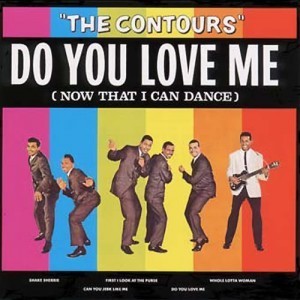Steve Murrell's Blog, page 59
December 8, 2014
Don’t Quit
 This is an odd blog title, since it seems like I quit blogging. There are many reasons for my blog delinquency, but only one is legit, the others are just lame excuses. Here’s my respectable reason for my invisible blogs of late: most of my writing energy is being invested in a new book about parenting that should be completed in the next couple of months.
This is an odd blog title, since it seems like I quit blogging. There are many reasons for my blog delinquency, but only one is legit, the others are just lame excuses. Here’s my respectable reason for my invisible blogs of late: most of my writing energy is being invested in a new book about parenting that should be completed in the next couple of months.
I have three working titles. Which one do you think is best?
The Heart of Parenting
Discipleship at Home
My First, Second, and Third Attempts at Parenting
While researching for my new book, I stumbled on this blog that was originally posted six years ago. I thought it might be a good Christmas season post.
——————–
Ever want to quit – a relationship, job, church – but the Holy Spirit wouldn’t let you?
Even though it would be easier to walk.
Even though you were wronged.
Even though it hurts to stay.
Maybe the marriage is not all you dreamed it would be.
Maybe the job is not what it was promised to be.
Maybe the church really is filled with hypocrites.
But for some reason, God will not let you quit.
So what do you do? Stay, or walk? Go for it on 4th and 20, or punt? Fight on, or tapout? All in, or fold?
What do you do when everything in you says to quit, but some faint barely discernible still quite voice says to hang in there?
If you ever feel like that, I suggest you read the Christmas story.
The one in Matthew 1:18-25.
Summary. A man discovers his fiancé is pregnant. The baby is not his. She claims it is God’s. Yea, right. I’m out of here. He wasn’t bitter or vindictive. Just hurt. Confused. And moving on with his life. But while he was sleeping, God sent an angel to tell him that the baby really was from God, and he better not quit.
I’m sure he still had questions. And doubts. And pain. But he stayed. He went for it. All in.
“When he woke up, he did what the angel of the Lord had commanded.” (v. 24)
Same question as before: ever wanna quit – relationship, job, church – but the Holy Spirit says not to?
We all have.
Aren’t you glad you listened to Him, and refused to quit?
November 6, 2014
Good People, Bad Things, Why?
 MANILA. Why do bad things happen to good people? Most preachers have heard and attempted to answer that unanswerable question.
MANILA. Why do bad things happen to good people? Most preachers have heard and attempted to answer that unanswerable question.
Every weekend for the past three weeks in over 100 worship services in fifteen Metro Manila locations, Victory preachers attempted to answer the “Why Me?” question by studying and teaching the Book of Job. While I am not sure we really answered the “why” question, we did answer the “how” question. (More on that in point 5 below.)
Last Sunday, in the third installment of our “Why Me?” series, Joseph Bonifacio gave as good a non-answer to that question as I have ever heard. (Here’s a link to that sermon.)
I didn’t preach any of the “Why Me?” sermons in our Job series, but I did read the book. Here are seven thoughts from a recent reading of the Book of Job. Maybe my notes will help you get through your “Why Me?” seasons.
1. Bad things happen to seemingly good and innocent people. Four times
Job is described by God as “blameless and upright” yet he experienced
horrible suffering. Being good and godly does not exempt us from suffering.
2. The devil is real and he comes to “steal, kill and destroy.”
Job 1 makes it clear that all Job’s pain and loss was an act of
the devil, not an act of God.
3. People experiencing bad times need good friends. When you have
friends who are suffering, try doing what Job’s friends did in Job
2:13 “Then they sat on the ground with him for seven days and seven
nights. No one said a word to him, because they saw how great his
suffering was.” Sometimes the best response to a friend in pain is to just be there, and to be silent.
4. Good friends often give bad counsel. Unfortunately, after that week
of silence, Job’s friends opened their mouths and stuck both feet in,
nasty sandals and all. Most of the Book of Job is chapter after chapter of the worst advice ever given.
5. Some things can’t be explained and some “why” questions can’t be
answered. The book of Job never answers the “why” question. But it
does paint a good picture of “how” – how to find God in our pain and
how to respond to calamity in a way that honors God.
6. We can find God in our pain and loss, if we do what Job did when he
realized the extent of his loss – “then he fell to the ground in
worship…” (Job 1:20) Do we only worship God in the good times?
7. In the end, the blessing of God caught up with and overtook Job.
Most people don’t press through and read the whole book of Job. But if
you endure til the end, you will find that “the Lord blessed the
latter part of Job’s life more than the former.” (Job 42:12) And if we
endure past our pain, we will find God in the end.
October 8, 2014
What Is an Empowered Church?
PORTLAND. It was a privilege to preach at City Bible Church during their Purple People (Purple Book) campaign and to teach WikiChurch discipleship principles at the Ministers Fellowship International (MFI) Focus Conference. I was glad to see Pastor Frank Damazio on the road to recovery in his fight of faith to defeat cancer. His book, The Making of a Leader, is on my top ten book list. And I was glad to meet so many MFI leaders who asked me to say “hi” to my good friend Joey Bonifacio.
As I prepared to teach the “Same Ole Boring Strokes” (aka discipleship) to these MFI leaders who do an amazing job of equipping, I decided to focus on the empowering part of the discipleship process. No matter how effectively we equip people to minister, the discipleship process is incomplete until we empower every disciple to make disciples.
A quick read through Acts shows us what an empowering church looks like:
1. The Holy Spirit empowers believers to be His witnesses.
Acts 1:8 “But you will receive power when the Holy Spirit comes on you…”
2. Rather than doing all the ministry themselves, apostles empowered others.
Acts 6:2 “the Twelve gathered all the disciples together and said, ‘It would not be right for us to neglect the ministry of the word of God in order to wait on tables…’”
3. Empowered churches grow.
Acts 6:7 “So the word of God spread. The number of disciples in Jerusalem increased rapidly, and a large number of priests became obedient to the faith”
4. Persecuting or killing top leaders does not stop an empowered church.
Acts 8:1 “On that day a great persecution broke out against the church at Jerusalem, and all except the apostles were scattered throughout Judea and Samaria”
5. Empowered people minister as they go and they minister wherever they go.
Acts 8:4 “Those who had been scattered preached the word wherever they went.”
6. Empowered people become leaders of people.
Acts 8:5 “Philip went down to a city in Samaria and proclaimed the Christa there”
7. Empowered people preach the good news even if they are not apostles or pastors.
Acts 11:19 “Now those who had been scattered by the persecution in connection with Stephen traveled as far as Phoenicia, Cyprus and Antioch, telling the message only to Jews. Some of them, however, men from Cyprus and Cyrene, went to Antioch and began to speak to Greeks also, telling them the good news about the Lord Jesus. The Lord’s hand was with them, and a great number of people believed and turned to the Lord.”
8. Barnabas empowered a new believer named Saul when no one else believed in him.
Acts 11: 25 “Then Barnabas went to Tarsus to look for Saul, and when he found him, he brought him to Antioch. So for a whole year Barnabas and Saul met with the church and taught great numbers of people. The disciples were called Christians first at Antioch.”
9. Empowering does not mean there are no authority lines.
Acts 15:24 “We have heard that some went out from us without our authorization”
10. In an empowered culture we will always have people who are ministering/preaching who don’t really have a full understanding of theology.
Acts 18:24 “Meanwhile a Jew named Apollos, a native of Alexandria, came to Ephesus. He was a learned man, with a thorough knowledge of the Scriptures. He had been instructed in the way of the Lord, and he spoke with great fervorb and taught about Jesus accurately, though he knew only the baptism of John. He began to speak boldly in the synagogue. When Priscilla and Aquila heard him, they invited him to their home and explained to him the way of God more adequately.”
October 2, 2014
Why I Never Think about My Legacy
JOBURG. At the Joburg airport about to board a long flight back to Nashville, after two productive weeks of ministry. I get to work with some amazing African leaders who are doing much to honor God and make disciples on this continent. More about that on a future blog.
Before my South Africa trip, I listened to an Andy Stanley leadership podcast that said great leaders are always thinking about their legacy. Confession: I never think about my legacy. And I mean NEVER.
Seriously, the idea of legacy only enters my mind when someone like Andy mentions it, then it is “in one ear and out the other.” While not thinking about my legacy, here’s what I do think about all the time, even on my day off:
1. Honoring God. For me, this is the starting point, the finish line, and the ultimate motive for life, work, and ministry.
2. Making disciples. This is not my responsibility because I’m a pastor, rather it is my privilege because I’m a follower of Jesus.
3. Doing mission. This Has to do with calling. I don’t know what you are called to do. I am called to equip, empower, and encourage current and future pastors and campus missionaries to make disciples and establish strong growing churches and campus ministries in every nation. When you discover your calling and mission, you will think about it all day every day and your legacy will probably take care of itself, even if you never think about legacy.
4. Serving people. During a time when leadership was hierarchical and dictatorial, Jesus flipped the script and redefined leadership as serving. If you do servant-leadership right, you’ll never have to worry about legacy.
4. Empowering leaders. This phrase is a bit redundant. Is it really leadership if it is not empowering? Hopefully the leaders I empower will take care of the legacy I never think about.
5. Riding my GS. Unfortunately I think about riding much more than I actually ride. This picture of a father/son ride is worth a thousand words. Not sure #5 has any connection to legacy , but periodic two-wheeled therapy clears my mind and keeps me sane.
September 17, 2014
My Top 10 Most Influential Books
 NASHVILLE. It seems that everyone on the interweb is now required to either dump ice water buckets on their head, criticize Victoria Osteen, post narcissistic selfies, or make a top ten book list. Since I have no interest in the first three, I am choosing door number four.
NASHVILLE. It seems that everyone on the interweb is now required to either dump ice water buckets on their head, criticize Victoria Osteen, post narcissistic selfies, or make a top ten book list. Since I have no interest in the first three, I am choosing door number four.
I’m not sure about the rules of the top ten book list, so I am making up my own parameters. These are not my favorite ten books. They are not the best ten books. My list is simply the top ten books that I think had the greatest influence on my life. Here they are, in no particular order.
1. No Wonder They Call Him Savior by Max Lucado. I have lost count of how many times I have read this one. It taught me that complicated difficult-to-understand theological concepts can be communicated with a clarity and simplicity that even a child can comprehend.
2. C.T. Studd by Norman Grubb. First missionary bio I read as a new believer. The CT Studd story planted seeds of sacrifice and service deep in my soul as a teenager. Not sure I would have stayed in Manila had I not read this foundational book about absolute surrender to the Lordship of Christ and cross-cultural mission.
3. Knowing God by J.I. Packer. Helped me know God, and made me want to know Him better. Another book I read over and over and over. Today it is held together by duct tape.
4. The Pursuit of God by A.W. Tozer. Ignited a lifelong desire to pursue and please God wholeheartedly. Reignites that desire every time I read a page.
5. The Holiness of God by R.C. Sproul. Opened my eyes the first time I read it. Opened my heart the second time. Pierced my heart the third time. Healed my heart the fourth. Every time I read this book, I go deeper with God.
6. A History of Christianity: Volume I: Beginnings to 1500 by Kenneth Scott Latourette. Everything Latourette wrote about history is worth reading, but his early church history is the best. His experience as a missionary to China and later as a professor of Ecclesiastical History at Yale gave him a unique perspective of the expansion of the church. The combination of missional passion and scholastic detail make these 700 pages feel read like an adventure novel.
7. Focus by Al Ries. I read a lot of leadership and business books. None have impacted the way I work or shaped the way I think more than this one. I think I need to read it again soon.
8. The Making of a Leader by Frank Damazio. More than any book that is not part of the Bible, this book has influenced how I think about leadership, how I lead, and how I equip and empower leaders.
9. Shepherding Your Child’s Heart by Tedd Tripp. Whatever my sons have become as men, Deborah and I own a debt of gratitude to this book. Best parenting book, period.
10. The Old Man and the Boy by Robert Ruark. My dad’s all-time favorite book. I finally read it when I had my first son, and understood Dad’s parenting philosophy like never before. “This book captures the endearing relationship between a man and his grandson as they fish and hunt the lakes and woods of North Carolina. All the while the Old Man acts as teacher and guide, passing on his wisdom and life experiences to the boy, who listens in rapt fascination.” (Amazon description.)
September 11, 2014
Crashing Planes & Crushing Myths
NOTE: I wrote this article 10 years ago for the PCEC (Philippine Council of Evangelicals Churches) magazine.
September 11, 2001. As always, I phoned my dad to wish him a happy birthday. I was getting ready for bed in Manila. He was getting ready for work in Mississippi. After a brief discussion about the US stock market, I handed the phone to my sons so they could speak to their grandfather. As soon as we hung up, I heard my wife calling, “Quick, you gotta see this. A plane just crashed into some building in New York!”
 Like thousands of others around the globe, I was glued to CNN for the next few hours, watching in disbelief as three more planes crashed, killing thousands, wounding a nation, and terrorizing the world. Over the next few days the news moved me to tears, to anger, and to prayer. I was amazed that the same news producers who usually mock and vilify preachers, were now putting them on primetime asking their perspective on the attack. The line-up included Billy Graham, Franklin Graham, TD Jakes, Dr. James Dobson, and others. Courtesy of CNN, these men probably preached the gospel to more people that week than at any other time in their lives.
Like thousands of others around the globe, I was glued to CNN for the next few hours, watching in disbelief as three more planes crashed, killing thousands, wounding a nation, and terrorizing the world. Over the next few days the news moved me to tears, to anger, and to prayer. I was amazed that the same news producers who usually mock and vilify preachers, were now putting them on primetime asking their perspective on the attack. The line-up included Billy Graham, Franklin Graham, TD Jakes, Dr. James Dobson, and others. Courtesy of CNN, these men probably preached the gospel to more people that week than at any other time in their lives.
Of course, the newscasters interviewed plenty of “experts” who had nothing to say, but kept talking anyway. I did not know whether to laugh or cry when they interviewed novelist, Tom Clancy. I suppose he qualified as an expert on terrorism because he once wrote a novel about a hijacked plane that crashed into a building. It’s a sad commentary on contemporary culture when all it takes to be an expert is the ability to make up a good story.
Here’s what Mr. Clancy had to say about the situation: “We need to be careful not to overreact to this. We must realize that WE ALL SERVE THE SAME GOD OF LOVE.”
Do we really all serve the same God? Do all religions worship a God of love? Clancy’s comments about the tragedy are typical of many post-modern pseudo-intellectuals. Unfortunately even Christians get sucked into this irrational unbiblical way of thinking. It is my hope that the events of September 11 will forever expose and crush two powerful myths that defy logic and corrode the foundations of the Faith.
1. THE MYTH OF RELIGIOUS SINCERITY. Anyone who was ever attempted to be a witness for Christ has heard some variation of this statement: “As long as you are sincere, it doesn’t matter what you believe or which religion you follow.” It seems that sincerity has replaced truth as the ultimate religious issue of our day. Unfortunately, many today are sincerely wrong. Suppose we are both on a sinking ship and neither of us can swim. We are told to get into the inflatable lifeboats and we will be safe. We both sincerely believe what we are told and act accordingly. You get in one boat and I get in the other. One problem: my boat has a hole in it and sinks. It does not matter how sincerely I believe the boat will save me, if it has a hole then my sincerity is useless. Unfortunately many people sincerely believe in religions and philosophies that are filled with holes, destined to sink. Don’t ever forget that the pilots who crashed into the World Trade Center towers, killing thousands of innocent people, were very sincere in their service to their god. This is the result of elevating human sincerity above divine truth. Let September 11 be a reminder that truth, not sincerity is the ultimate issue.
2. THE MYTH OF RELIGIOUS EQUALITY. Another common myth tells us that “All religions lead to the same God.” If one person studies and practices the teachings of the Bible, another the Koran, another the Veda, another the Book of Mormon, will their values, beliefs, and lifestyles be the same? Of course not, because all religions are not basically the same, they are fundamentally different. For example, Jesus taught his followers to love and serve pagans in hope that they will voluntarily turn to the true God. Even if this has not been obeyed in history, this is what Jesus taught. And it is a far cry form declaring holy war on infidels and unbelievers. So, do all religions ultimately lead to the same God? Do all roads really end up at the same place? Does it matter which road you take if you are driving home? Of course it matters because all roads do not lead to the same house. If you take the wrong road, you will not reach your destination, no matter how sincere you may be. When Thomas said to Jesus: “Lord, we do not know where you are going, so how can we know the way?” (John 14:5) Jesus did not answer: “Thomas, my son, it does not matter which way you go because all paths ultimately lead to God.” No! Jesus said, “I am the way and the truth and the life. No one comes to the Father except through me.” (John 14:6) Jesus was very narrow. He said there was only one way, not several options.
May the same acts of violence that took the lives of thousands of innocent people also destroy the myths that blind the minds of millions around the world.
September 5, 2014
A Framework for Restoring the Fallen and Fixing Bad Theology
MIDLAND, TEXAS. You know the story. Peter had denied Jesus three times and returned to his former life of fishing for fish. Then Jesus showed up. His one agenda: restoration. Like the rest of humanity, Peter was not exactly seeking Jesus, but that didn’t stop Jesus from seeking and finding him. Funny how Jesus shows up when we least expect or desire Him. “Even when we are faithless, he remains faithful.” (2 Timothy 2:13)
for fish. Then Jesus showed up. His one agenda: restoration. Like the rest of humanity, Peter was not exactly seeking Jesus, but that didn’t stop Jesus from seeking and finding him. Funny how Jesus shows up when we least expect or desire Him. “Even when we are faithless, he remains faithful.” (2 Timothy 2:13)
After giving some pretty bizarre fishing tips that proved to be successful, Jesus then enjoyed breakfast with Peter and his fisherman friends. The restoration process has started, whether Peter and his friends realized it or not. Over the years I have found that restoration mixes well with food. After starting with food, the next step in the restoration process is to ask a good question, and repeat it until the heart is pierced.
“Peter, do you love me?” (John 21:15,16,17)
Good questions are often pointed and painful. They are also often avoided, deflected, and left unanswered. That’s why they need to be repeated three times or more.
This story teaches us that when we have taken underperformance to a whole new level, when we have failed gloriously, and when we have totally disappointed God and others, Jesus’ first question to us is not about our performance, our disobedience, or our failure. His first question is about our relationship with Him.
“Do you love me?”
Notice that Jesus did not ask a theological question. He did not ask an organizational question. And He did not ask a missional question. He asked a relational question. This is not to suggest that theological conviction, organizational unity, and missional direction are unimportant. It is just that they are not primary when it comes to restoration.
”Do you love me?”
If we get the relationship restored, then we can have serious and productive discussions about theological nuances, organizational structures, and missional strategies.
It is common to frame church splits and ministry conflicts as theological, organizational, or missional disagreements. Reality has taught me that the root issue is usually relational. Because we do not want to face the pain of relational honesty, we cop-out and hide behind theological smokescreens. Rather than working through relational offense, we split and blame it on the mission and vision.
At times I have been criticized for being too relational and not organizational enough. After trying my best to correct this, I was then criticized for being too organizational at the expense of being relational. If that is not confusing enough, I have also been criticized for being too theological and not missional enough. And for being too missional and not theological enough.
I concluded a long time ago that since I cannot please everyone, then I would only live to please One. I have also come to the conclusion that pleasing Him requires me to prioritize relationships. And if we get the relational part right, we will be able to fix whatever theological, organizational, and missional problems that arise.
August 25, 2014
My Thoughts on the Mark Driscoll, Mars Hill, Acts 29 Scandal
HONOLULU. Pastor Mark Driscoll, Mars Hill Church, and Acts 29 have been all over the news lately. One headline read, “Mark Driscoll Charged with Abusive Behavior by 21 Former Mars Hill Pastors.” How could a church as young as Mars Hill have 21 former pastors? Did the 21 quit, or were they fired? Why?
 A sinister voice within told me that since I am a leader, I need to know the dirt that these 21 ex-Mars Hill leaders have on their former boss. So, I clicked and started reading. But I didn’t get very far because the words at the top of the page and the conviction of the Holy Spirit stopped me in my tracks.
A sinister voice within told me that since I am a leader, I need to know the dirt that these 21 ex-Mars Hill leaders have on their former boss. So, I clicked and started reading. But I didn’t get very far because the words at the top of the page and the conviction of the Holy Spirit stopped me in my tracks.
Here are those words: “CONFIDENTIAL: We don’t intend to make this communication public, and we ask that you not make it public either.”
Someone obviously ignored this request and made it very public. And that’s just plain wrong.
The letter was addressed to “Mars Hill Church Full Council of Elders.” It was from “Mike Wilkerson and former Elders of Mars Hill Church.” A confidential letter from former elders to current elders should not be available to random strangers on facebook.
The letter was clearly marked CONFIDENTIAL, and since I am neither a former nor a current Mars Hill Church elder, I had no right to read it.
So, I closed my iPad and read no more.
Even though I did not read the “charges of abusive behavior” against Mark Driscoll by the 21 former elders, I still have a thought on Mark Driscoll and the whole scandal. Here it is: since I am not a Mars Hill member or elder, and I have never visited Mars Hill, and I have never given money to Mars Hill, and I have never met Pastor Mark, therefore, the whole Mark Driscoll, Mars Hill, 21 elder, and Acts 29 scandal is…
NONE OF MY BUSINESS!
And that’s all I have to say about that.
August 15, 2014
30 Years in 30 Words
TOKYO. Eight-hour layover. Thinking about the 30th anniversary celebration of Victory. Here’s my description of how and why it all started 30 years ago, in just 30 words.
——–
1984.
MISSISSIPPI. Rice. Mission. Money? Partners. Passport…
GO!
MANILA. Traffic. Poverty. Jeepneys. Floods. Smiles. Mango…
U-BELT. Crowds. Radicals. Riots. Teargas. Hopelessness. Gospel. Jesus. Worship. Discipleship. Faith. Hope.
STAY! Victory. Grateful.
——–
(Check out the official Victory at 30 timeline with vintage photos.)
August 10, 2014
Pondering the Meaning of Life
MANILA. Yesterday, at over one-hundred worship services in fifteen Victory Manila venues, we started a sermon series about the ultimate meaning of life based on the Book of Ecclesiastes. Dozens of Victory preachers asked some deep questions and hopefully provided some biblical answers.
Here’s an old story that I used to introduce the sermon. (This story was originally written for an article in Evangelicals Today magazine over ten years ago.)
While at my favorite beach in the Philippines, I overheard the following conversation.
“Come on, Daddy. Come down the slide with me.”
Splash!
“It’s fun . . . and see, the water’s not too cold . . .”
“Not now, son. I’m watching the sunset.” The overworked, stressed-out American executive mumbled to his energetic son while sipping some kind of crushed ice tropical concoction from a coconut shell.
Like any normal ten-year-old, this kid couldn’t even begin to understand how a human could choose to passively stare at a boring sunset rather than climb to the top of the slippery steps, stand in line behind a bunch of wet, shivering kids, then speed down a water slide, eventually splashing in a pool full of rowdy preteens. So he asked: “Why are you watching the sun, Dad?” The boy wanted a simple, practical explanation to this unsolved middle-age mystery.
The dad waxed eloquent: “Because it’s the meaning of life, son.”
“The what?”
“The meaning of life.” The philosopher-dad explained to his perplexed son, “When you are a ten-year-old, water slides and swimming pools are the meaning of life. But when you are forty, watching the sunset over Sombrero Island is the meaning of life. Understand?”
I don’t think junior understood at all. I’m not sure Dad understood either.
That seaside sunset conversation started my mind racing. Just what is the meaning of life? Immediately I thought about the movie City Slickers. In my favorite scene, Curly the leather-faced cowboy, pointed his index finger straight in the air and spoke of the “meaning of life.”
When the misplaced urban cowboy, Billy Crystal, wondered how one finger could be the meaning of life, Curly explained that one thing, not one finger, is the meaning of life.
“One thing. What one thing?” the city slicker inquired.
“That’s what you have to find,” Curly (Yoda on a horse) responded.
By the movie’s end, Billy’s character had found his one thing—his family.
What about you? What is your one thing? What does your life revolve around? What do you live for? What is the meaning of your life? Sunsets and vacations? Water slides and swimming pools? Family? Money? Fame? Popularity? Success? Survival?
David found his one thing. And, he did not find it in fame, fortune, family, success, survival, or sunsets. He certainly had all of these, especially fame, fortune, and family. Just what was David’s one thing? What was the meaning of his life? He left us a clue in Psalm 27:4:
One thing I ask of the Lord, this is what I seek; that I may dwell in the house of the Lord all the days of my life, to gaze upon the beauty of the Lord and to seek him in his temple.
David’s one thing was the presence of the Lord. He was obsessed with the glory and majesty of his God.
Paul was another guy who found his one thing. Here’s what he said about it:
But whatever was to my profit I now consider loss for the sake of Christ. What is more, I consider everything a loss compared to the surpassing greatness of knowing Christ Jesus my Lord . . . one thing I do: forgetting what is behind and straining toward what is ahead. (Philippians 3:7,8,13)
Paul was a brilliant and highly educated man. He had power and status in the Jewish religious system. He says he counted it all as nothing compared to knowing Jesus. He didn’t toss it all in the trash for money or for ministry, but for Jesus. His great passion in life was to know God.
According to David and Paul, the real meaning of life begins and ends with the pursuit of God. And just how does one pursue and find God? As always, Jesus is the answer: I am the way, the truth and the life. No one comes to the Father except through me. (John 14:6)
According to this Scripture, Jesus is more than the meaning of life; He is the life. Thus, any search for meaning apart from Jesus Christ is fruitless.
The Westminster Catechism summed it up as well as it could ever be summed up when it answered the question: “What is man’s chief end?” The answer: “Man’s chief end is to glorify God and to enjoy Him forever.”
There you have it, folks. The meaning of life in a nutshell. To glorify God and to enjoy Him forever! Once you discover the real meaning of life, then the sunsets are much more spectacular and the water slides with your kids are much more fun!
Steve Murrell's Blog
- Steve Murrell's profile
- 53 followers





